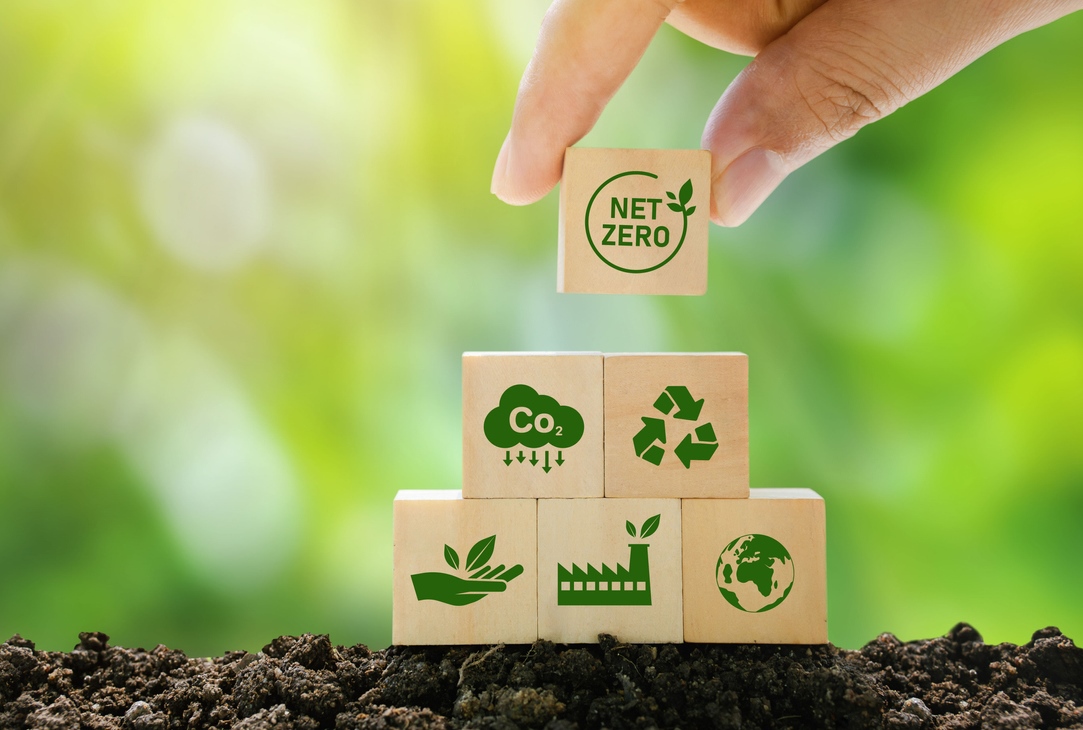ASTANA — Kazakhstan, one of the world’s leading producers of natural resources, faces growing pressure to adopt low-carbon technologies to stay competitive amid tightening global regulations on carbon emissions. With high-emission sectors such as aviation, transportation, metallurgy, and cement production dominating its economy, the country must accelerate its decarbonization efforts. A recent World Economic Forum (WEF) report, High-Emission Sectors: Challenges and Opportunities for Low-Carbon Technology Providers, outlines key strategies for transitioning to sustainable technologies, stressing the urgent need for structural changes in energy, transport, and industry.

Photo credit: iStock.
Transitioning to Sustainable Aviation Fuel
Aviation remains one of the most challenging sectors to decarbonize due to modern engines’ significant carbon dioxide emissions. The report identifies Sustainable Aviation Fuel (SAF) and emerging technologies, such as hydrogen and electric engines for short-haul flights, as key solutions for reducing emissions.
SAF, derived from renewable sources such as vegetable oils, cooking oil, agricultural waste, and carbon dioxide, can reduce emissions by up to 80% over its life cycle compared to fossil fuels. Its compatibility with existing engines makes it a feasible solution for airports.
For Kazakhstan, which aspires to be a regional aviation hub, SAF presents a major opportunity to reduce the sector’s carbon footprint. Investments in SAF production and storage infrastructure could not only green the country’s aviation but also position the country as and to neighboring markets transitioning to sustainable fuels. However, such developments require significant infrastructure investments, potentially supported by international development banks and private investors.
Freight transport and logistics
Kazakhstan’s transport sector is strategically vital, linking Europe and Asia, but it is also a major source of carbon emissions. The WEF report points to electric and hydrogen-powered trucks as promising technologies for reducing the sector’s environmental impact.
Kazakhstan could develop infrastructure for electric charging stations and hydrogen refueling points, paving the way for cleaner freight transportation. Increasing the share of rail freight — already far less carbon-intensive than road transport—could further support decarbonization efforts.
Government incentives, such as tax breaks and subsidies for electric or hybrid vehicle purchases, could encourage businesses to adopt sustainable transport solutions. The country could also align with international green corridor initiatives, where low-carbon transportation prioritizes low-carbon transportation. This effort will attract foreign investment and funding from global organizations promoting sustainable logistics.
Modernizing metallurgy and cement production
Metallurgy and cement production are among Kazakhstan’s most carbon-intensive industries, contributing significantly to national emissions. The WEF report highlights that modernizing production processes and implementing carbon capture and storage (CCS) technologies are essential for decarbonization.
Kazakhstan could adopt renewable energy and CCS technologies for the metallurgy sector, which capture carbon dioxide emissions. These technology production sites store them underground. This approach would significantly reduce emissions while maintaining environmental protections.
The country’s vast geological formations are well-suited for long-term carbon dioxide storage, offering opportunities to create CCS infrastructure at major industrial sites. This would enable export-oriented companies to meet low-carbon standards while supporting economic growth.
Kazakhstan could partner with international technology companies to adopt best practices for decarbonizing steel and cement production. Modernizing factories with energy-efficient technologies would ensure these industries remain resilient to future climate challenges.
To encourage investment, Kazakhstan could establish special economic zones for companies focused on CCS and other low-carbon technologies, offering tax breaks and subsidies to attract private sector engagement.
As the world accelerates its transition to low-carbon technologies, the country has a unique opportunity to modernize its high-emission industries. Investments in SAF, electric and hydrogen transport infrastructure, metallurgy and cement production modernization, and CCS technologies will allow Kazakhstan to significantly cut emissions and become a regional leader in low-carbon development.
The article was originally published on economykz.org.
